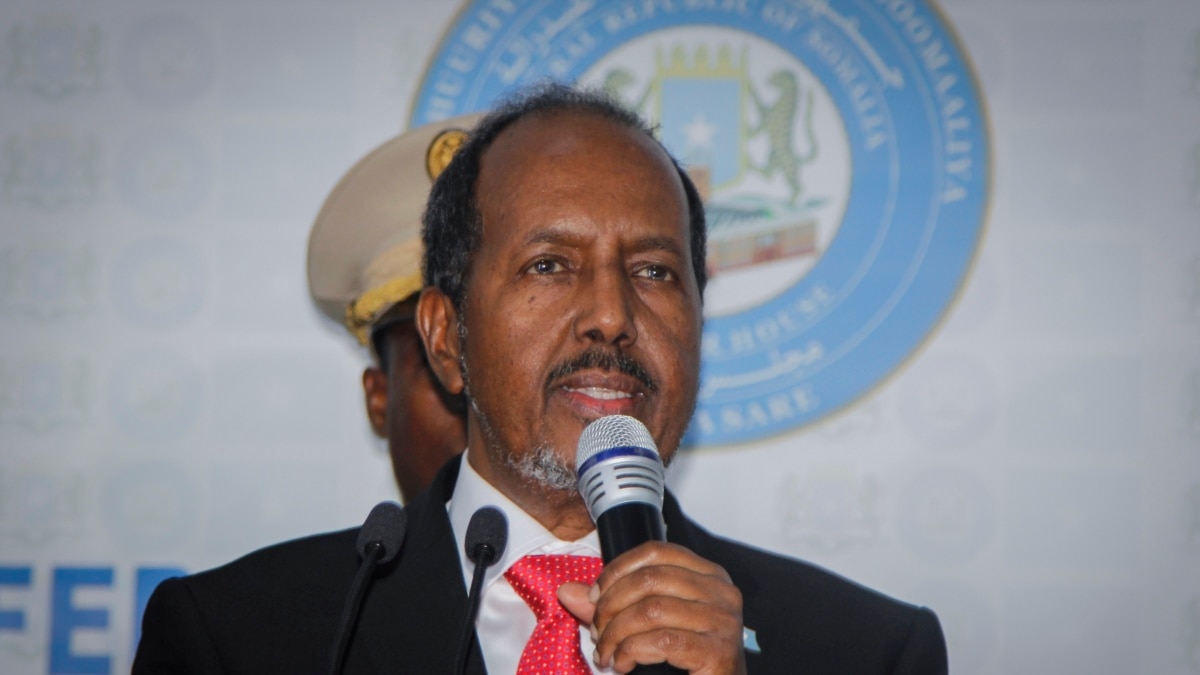This website uses cookies so that we can provide you with the best user experience possible. Cookie information is stored in your browser and performs functions such as recognising you when you return to our website and helping our team to understand which sections of the website you find most interesting and useful.


WASHINTON —
Somalia’s newly elected president is welcoming word that U.S. special operation forces will again be based in Somalia to help in the fight against the al-Shabab terror group.
Hassan Sheikh Mohamud thanked U.S. President Joe Biden in a tweet Tuesday, calling the United States “a reliable partner in our quest to stability and fight against terrorism.”
U.S. forces have been working for years with Somali forces in their efforts to contain al-Shabab, described by U.S. military and intelligence officials as the al-Qaida terror group’s wealthiest and most powerful affiliate. But in December 2020, former U.S. President Donald Trump ordered about 750 U.S. forces in Somalia to withdraw, instead having them fly in for periodic engagements.
The decision, however, became increasingly unpopular with U.S. military officials, who complained of having to “commute” to work, and with some Somali officials, who saw al-Shabab’s forces grow in the absence of a persistent U.S. presence.
“This was a wrong decision taken. Withdrawal was a hasty decision,” a senior adviser to Mohamud told VOA, ahead of the official announcement on Tuesday.
“It disrupted counterterrorism operations,” said the Somali adviser, who asked not to be named because his position in the administration has not yet been made public. “To reinstate and start with the new president is the right decision, and it came at the right time.”
U.S. officials, explaining the decision to deploy fewer than 500 troops to Somalia as part of what they describe as a persistent presence, agreed that the cost in waiting any longer would be high.
Al-Shabab “has unfortunately only grown stronger” since the December 2020 decision to no longer maintain an ongoing U.S. military presence in Somalia, a White House official said Monday, speaking on the condition of anonymity in order to discuss the new authorization.
Al-Shabab “has increased the tempo of its attacks, including against U.S. personnel," the official said. “We're concerned about the potential for al-Shabab's upward battlefield and financial trajectory to generate more space for the group to plan and ultimately to execute external attacks.”
Intelligence gathered by various countries and shared with the United Nations’ terrorism monitoring team earlier this year also suggests al-Shabab has grown more powerful.
The estimates, published in February, indicate the al-Qaida affiliate now has as many as 12,000 fighters and can raise up to $10 million in revenue per month.
Taken all together, U.S. officials said it became clear that a consistent U.S. presence on the ground in Somalia was needed.
“This is the best way for us to continue what has remained a very valuable advise-and-assist and training mission,” Pentagon press secretary John Kirby told reporters Monday.
While details are still being worked out, much of the U.S. focus is expected to be on helping the Danab Brigade, Somalia’s elite counterterrorism forces, that struggled even before the decision to withdraw U.S. forces in November 2020.
A 2020 report by the U.S. Department of Defense Office of Inspector General warned that despite some success, the Somali government had “not met milestones for the development of its security forces” and that most units “continue to rely on international support for operations.”
The lack of a persistent U.S. military presence on the ground in Somalia, combined with a cautious approach by the Biden administration, has also contributed to a decrease of U.S. airstrikes in support of Somali forces, something senior Somali officials hope will change with the imminent deployment of U.S. forces.
“Drone strikes and targeting the senior al-Shabab fighters is very welcome,” the Somali presidential adviser told VOA.
But U.S. officials have so far been noncommittal when asked whether more airstrikes are coming.
“I think we’ll just let the mission play out here,” the Pentagon’s Kirby told reporters. “I'm not going to be able to predict for you whether and how and to what degree activities like airstrikes are going to increase or decrease going forward.”
“The mission is not one of combat operations for our troops. It's advise and assist,” he added.
Anita Powell contributed to this report.



 Africana55 Radio
Africana55 Radio 
